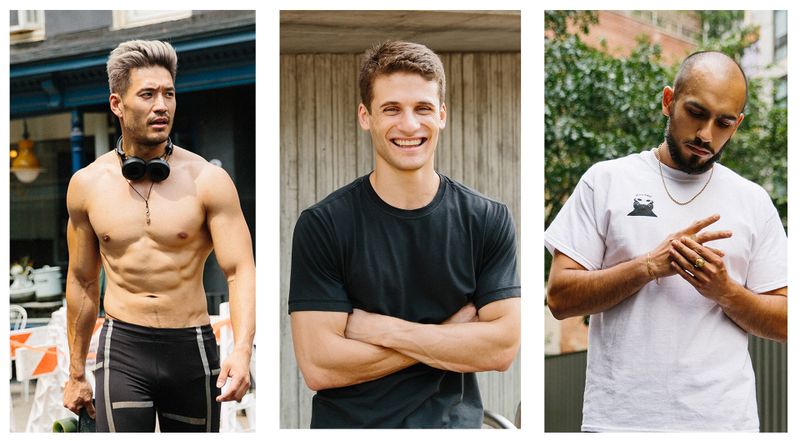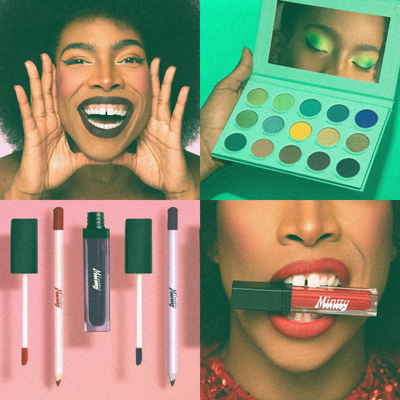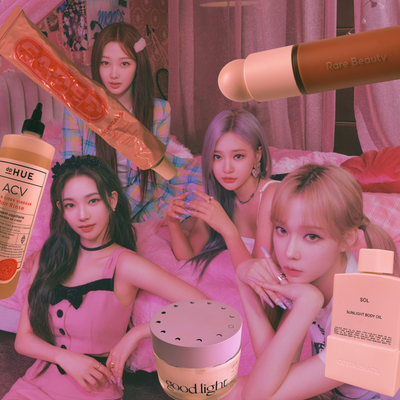
In partnership with Roman
Masculinity: let’s talk about it. From the inception of our site back in 2016, our mission statement has been to redefine masculinity. A year and a half later, masculinity is now front and center in our national conversation. It’s why we decided to launch our first Masculinity Week. We’ve partnered with a company that shares our values with Roman, a company that’s redefining the relationship men have with their own health. They believe that the more we talk about, communicate, and confront our problems, the more empowered we’ll be. This week, we’re introducing important stories unpacking masculinity and how we, as men, can empower one another. We’re in this together.
Are we in a masculinity crisis?
It depends on how you look at it. Our culture’s attitude towards masculinity can be linked to so many aspects of our country, some including: sexual assault highlighted by the #MeToo movement, classism and racism highlighted by Donald Trump’s election and non-binary gender inequality highlighted by the LGBTQ and Trans Rights movements. While “gender issues” have traditionally been a euphemism for the women’s rights, it’s becoming clearer that masculinity in itself is one of the driving forces behind these systemic problems. Those that believe we are in crisis are typically white cisgender straight men who are (finally) starting to feel their power come into question.
We are living in an important time, a moment in history where discussions of gender roles and their effects on society, are at an all-time high. This is a good thing, don’t get me wrong, but we’re only scratching the surface of where we should be.
The fact is, masculinity issues are not widely talked about in any context other than attaching the word “toxic.” We hear the term “toxic masculinity” thrown around in the news and on the Internet and rightly so. When a person’s (or culture’s) rigid concept of masculinity tips into misogynistic, homophobic or even violent territory, we need to call it out for what it is. The important aspect to note, however, is the qualifier (“toxic”) in this conversation. Masculinity as a concept is not negative or harmful, but it does have the capacity to be.
Yes, you have to call out the few bad apples in order to bring attention to the bunch – but masculinity is by nature a tenuous social construct that manifests in different ways. For every Trump supporter desperately holding on to his bullying entitlement, there is a man like Terry Crews speaking openly about sexual assault and his own relationship to masculinity.
We need to talk about not just the negative aspects of masculinity, but also the positive: where it’s going, how it’s evolving and what this all means for the rest of us.
What is beginning to be referred to as “new masculinity” isn’t defined by opposition, but instead, by inclusivity. New masculinity is about being vulnerable, being open minded and, as Crews himself said, “loving and caring for as many people as possible.” New masculinity is about peeking behind the curtain, exposing rigid gender roles and expectations for what they are, and redefining them on our own terms. It’s about teaching younger generations to think about their place in their world, how their actions affect others and how they can express emotions in a healthy way instead of harming themselves and others. It’s about thinking beyond the binary.
Which comes to a very important conclusion: the key is conversation. The concept of masculinity is a shadow that all men grapple with but few articulate openly. At its core lies the question of what makes a good man and what makes a real man, as Michael Kimmel, founder of the Center for the Study of Men and Masculinities at Stony Brook University, has written. This push-pull is essential to understanding the concept of masculinity. But how does it manifest itself in real life?
As the traditional concepts are highlighted, discussed, torn down and built back up, we as men have new responsibilities to ourselves and to others. We need to talk about not just the negative aspects of masculinity, but also the positive: where it’s going, how it’s evolving and what this all means for the rest of us.
Very Good Light brought together five men from across different walks of life to discuss this idea, to define where what masculinity is and where it’s headed.
So what is masculinity?
Here, we bring five real guys together to have them define what masculinity means in their own words…

Zachariah Reitano, 27, founder of Roman
To me, a man is someone who feels very comfortable in his own skin and is kind and strong and good to his friends and family. When I think about strength, it’s not necessarily in a typical way, but ways where through difficult moments, you rise up to meet those challenges. I think anger is such wasted energy.
It just means being comfortable with who you are.
Masculinity has changed tremendously, I’m just not satisfied. I think we have constant progress and it’s fantastic, but to some, masculinity still means strength and toughness and not necessarily taking consideration of the consequences of your actions. That’s the problem. Even in 2018, I would not say that we have the best definition of masculinity. In certain pockets, it’s still that old stereotype of a “walk it off” mentality. But I think in more progressive communities, it just means being comfortable with who you are, and I think that’s wonderful.

Starting Roman meant breaking down what it meant to be a man: the idea that men don’t have trouble getting an erection and are always perfect in the bedroom all the time and don’t have any stress in that area at all. I realized I was going to have to share one of the most personal experiences of my life with the entire world. That leap was something that I definitely struggled with in the beginning. I had a little epiphany and embraced any embarrassment that I may have felt. This entire process pales in comparison to anyone that I might help or impact by sharing my story.
When you make decisions through the lens of masculinity, it makes it harder to be kind and gentle and warm. I was vulnerable [in starting Roman] and it actually strengthened my relationships. It’s been refreshing to just let my guard drop and interact with people because now other people also know one of my most personal stories. And after that, there’s nothing that I can really share or do that would be more personal than that, and that means I can move throughout the world as comfortably as possible.
Jelani Mizrahi, 25, dancer, actor, and star of Viceland’s My House

Masculinity is a way you display yourself. There’s masculine energy that you have within: it’s strong, it’s handsome, it’s aggressive. I’ve been conditioned to view masculinity as showing no weakness and not being expressive. My father wasn’t a very expressive person. His masculinity holds him back. In my community, masculinity can be very oppressive. It’s set in stone and always in your face. For example, masculinity is not really associated with smiling in my culture. Smiling is a sign of weakness and men don’t show weakness. Or if you put your son in ballet or gymnastics, somebody would think that you’re weird. Men just don’t do ballet. But men can do a lot more than just play basketball and rap.
In the LGBTQ+ community, people are attracted to masculinity. It means you’re dominant or a top. The more masculine you are the better. It means you’re a go-getter, it means you’re desirable. But in gay culture, we are more fluid. We understand that there are certain things about a man that can also be feminine. You could be a masculine man, but if you show feminine traits it’s not condescending.
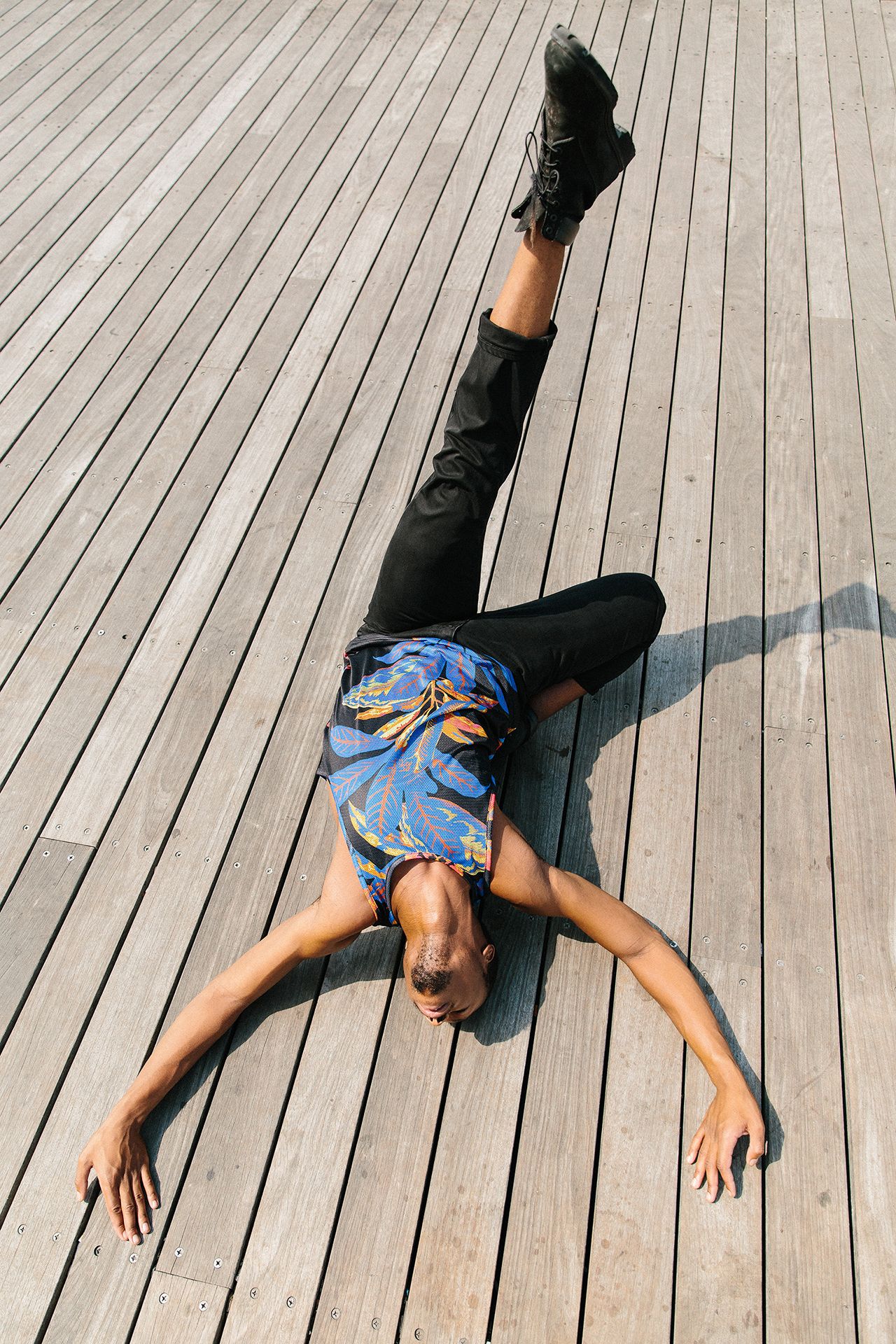
I just want to be free; I just want to express myself, like I’m a man and I’m gay too, you know? And I’m happy being gay. I feel now that I can be a little bit more fluid because masculinity is shifting. I can vogue today, I can wear shorts just a little above my knees. I can smile more.
What I do in my everyday life is be myself. That’s my greatest power. When people see me they emulate me and they are inspired by my boldness to express myself. Leading by example has a political effect. I cause people to be themselves or to come out to their fathers or more boys want to do gymnastics or more boys want to dance. They see a boy dancing and they’re not so scared now. They have the courage to do that without being judged by their friends because they see somebody else doing it.
Kevin Kreider, 35, personal trainer, life coach and speaker
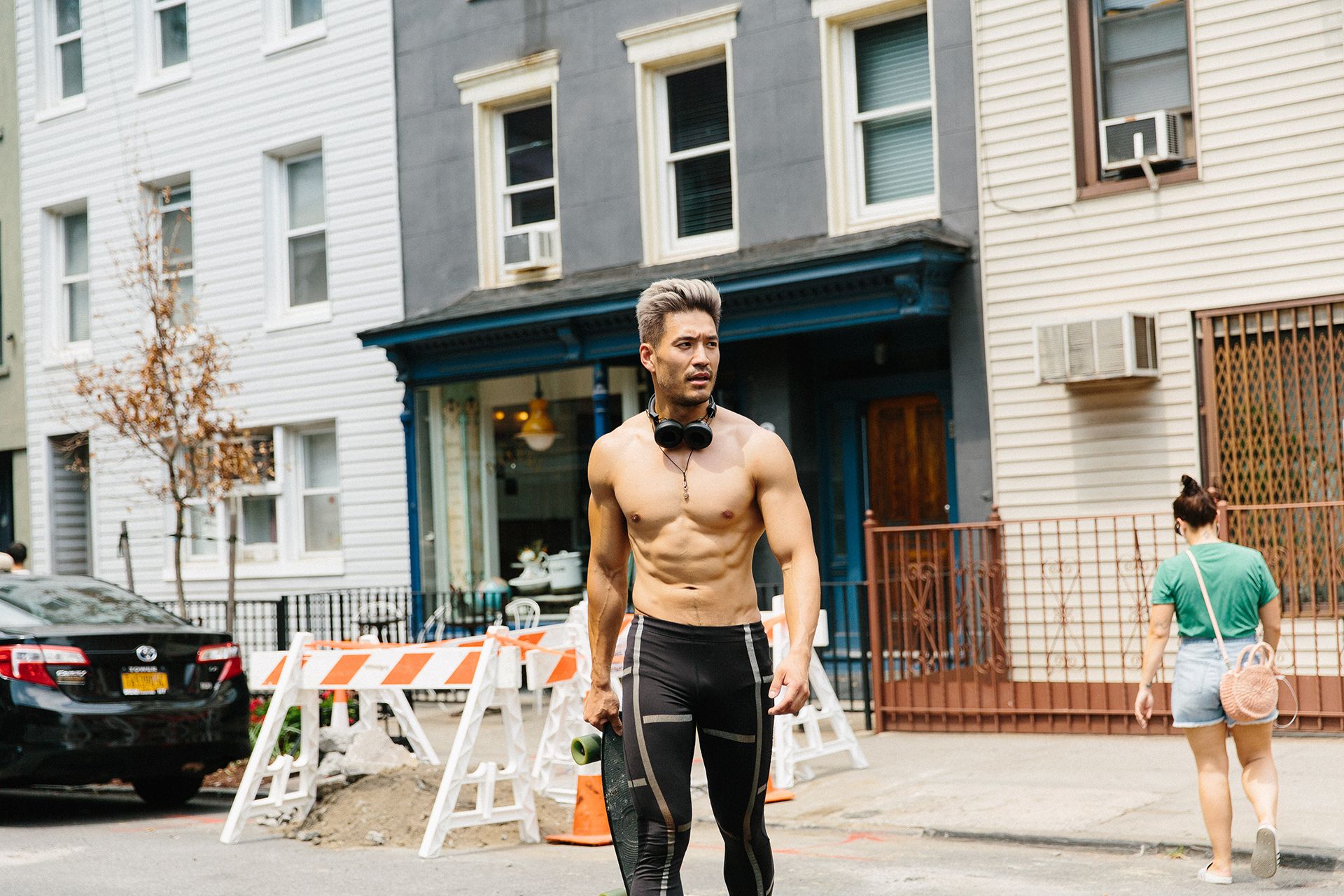
As Asian men, we weren’t seen as masculine growing up. We were seen as weaker, inferior, so the word masculine and Asian never really coexisted. It feels like an oxymoron at times because we weren’t seen as attractive. We weren’t seen as hyper-sexual. We weren’t even seen as sexual. In my peer group right now, we’re discovering it for ourselves, being confident, embracing our own identities as Asian males. We might not have as much body hair [as other guys], but if we can own it and be proud of it and not give a fuck and not seek validation from other people, that is masculine.
According to American culture, to be masculine you have to be a white male. It’s like a Rambo-style “I can do this on my own” attitude. “I’ll kill everyone and stand victorious. I can conquer all. I can get to the top.” But everything is me, me, me. You see it even as little kids. You try to do everything on your own. You don’t want help from other people because you think it affects your own confidence and masculinity, but really, I think it’s actually more powerful to accept people’s help.
In Asian culture, power is what makes you masculine. They’re status driven. They’re obsessed with what car they’re driving, how much money they make, what brand they’re wearing. That’s the wrong thing because I believe real power is personal empowerment. If I took that Louis Vuitton watch from you, are you going to feel just as confident? If I take that car from you, if I take that bottle service from you, if I take that promotion away from you, are you going to still feel good about yourself? The answer is, for most Asian people, because we’re cultured and conditioned to think that we’ve got to be doctors or lawyers and successful, probably no.

When I was in my 20’s, I thought it was all about how many girls I could sleep with and how muscular I could get. I needed to be better to make me feel masculine. But I realized there’s always going to be someone winning more. Now I’m okay with that. Masculinity to me is being confident in your own skin, embracing your own identity as a human being without judging other people. It’s showing compassion. It’s being in touch with your emotions. I found that when I am more present with who I am, I accept that and don’t want to be anybody else, don’t want to be another race, don’t want to be another person, or jealous of somebody else’s success.
Thomas McBee, 36, writer and activist
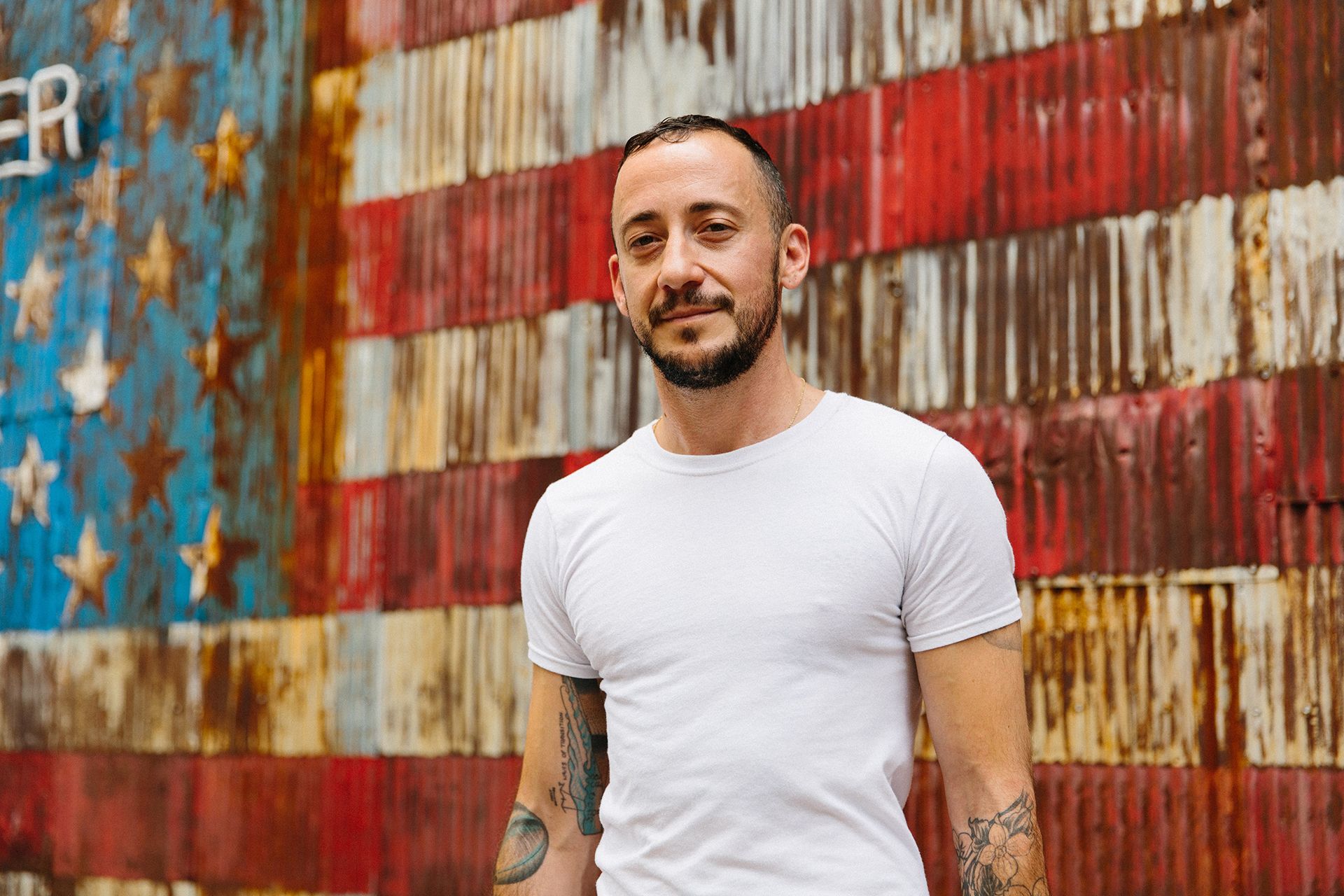
I don’t think being a man in 2018 is that different than being a man in any time. I think the biggest issue is thinking that being a man means one thing. It’s not a monolithic experience. The good news is, more than ever, we’re in a moment where gender is something that people are talking about, and I think men have a unique opportunity to make masculinity visible, realize that they have a gender, start asking really important questions, and to expand those notions of what being a man means. People are doing that, I just don’t think it’s a wholesale thing that’s happened yet.
I transitioned when I was 30 and almost immediately I felt so much happier in my body, but when I walked into the world I wasn’t prepared for what being socialized as a man meant. Being a person who went through socialization as an adult, I was sort of uniquely able to see like, “Wow, why won’t people touch me?” or when I walk down the street women are suddenly afraid of me or when I talk in a meeting at work everyone gets quiet. That wasn’t always true.
It felt to me like I could either sort of accept it as just how it is – that’s just how guys are – or I could ask, “What kind of man do I want to be?” What it means now is to be able to ask those questions and answer them on my own terms and find my own way through it. That has helped me understand my own masculinity, which is tough and tender, and everything I was before I transitioned but in a male body.
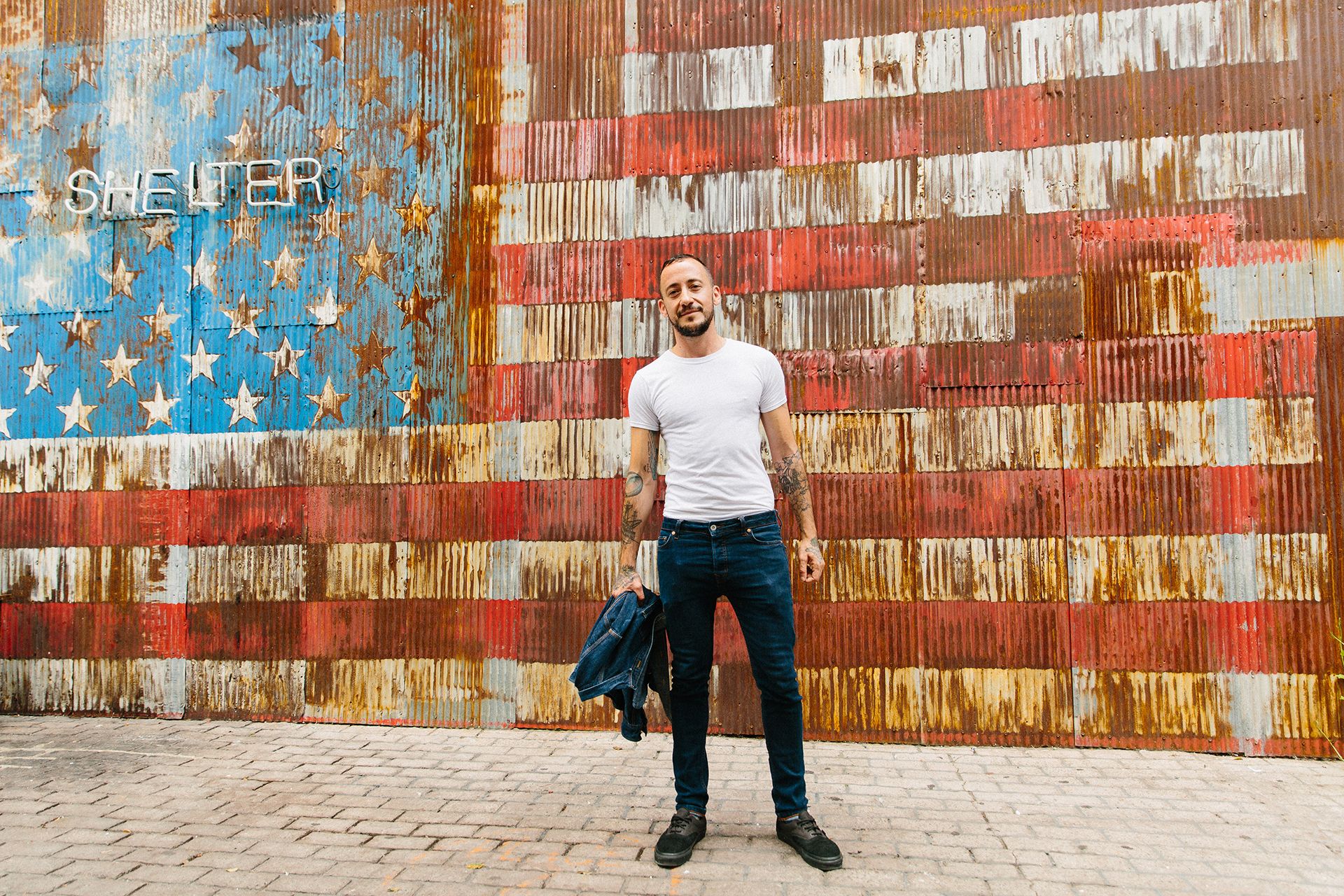
I want people to realize that gender isn’t a province of women and trans people. It’s a province of everyone and men have a gender. In the same way, white people need to realize we have a race, gender is a thing that we all have. Gender is an expression of something fundamental through the body and through our bodies, we express this essence of who we are. The more gender becomes something that we embrace instead of something that sort of happens to us.
This is an exciting time, but also if you don’t know your own relationship to any of this stuff, there’s no way you can be out in the world fighting for a cause or advocating for other people or anything. You have to start with yourself. That’s always been my feeling about masculinity in particular, like men really need to think about what they actually are saying when they are walking around in the world with their bodies. What are you performing? And make sure that what you’re performing is in line with who you are, because you totally do have control over what that is. Even if you’ve been told your whole life that there’s only one way to be, that’s not true.
Luis Galilei, 24, communications/marketing professional and creative director
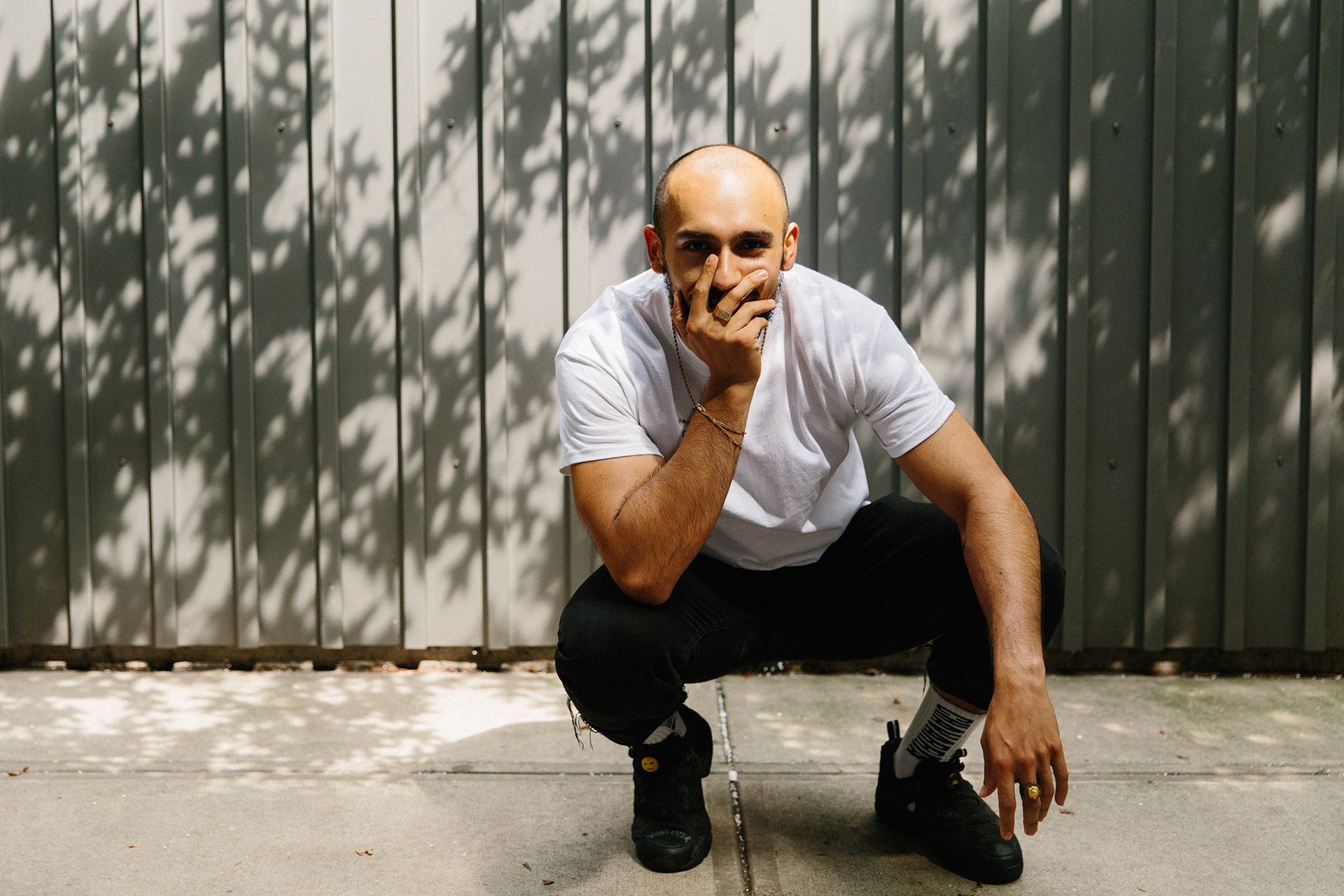
I think as far as American culture, masculinity means being strong, being in charge, making sure you give off that manly vibe. I do think that masculinity is how you carry yourself and your behaviors as a man. Masculinity is being able to be in charge of your emotions and not let them take you over. It’s also physical to me. A lot of people relate masculinity to physical appearance like wearing certain masculine colors, not going too colorful, not looking a certain way, walking with your chest puffed out.
That’s a word that’s used by other men to emasculate you. “Dude, stop acting gay.”
In Latin cultures it’s all about power. Who has financial stability, control, is put together, in charge, not feminine It’s funny because in the Latin community you’re supposed to keep yourself looking good. Your mom would never let you leave the house looking a mess because she was like, “That represents the family.” I think masculinity has such importance in the Latin culture because the man is representing the last name so he has to be completely put together. He’s the shoulder for everyone to lean on. In my culture the man holds a lot. He’s the center. But what about some of us that aren’t the center? That haven’t reached that stability yet?
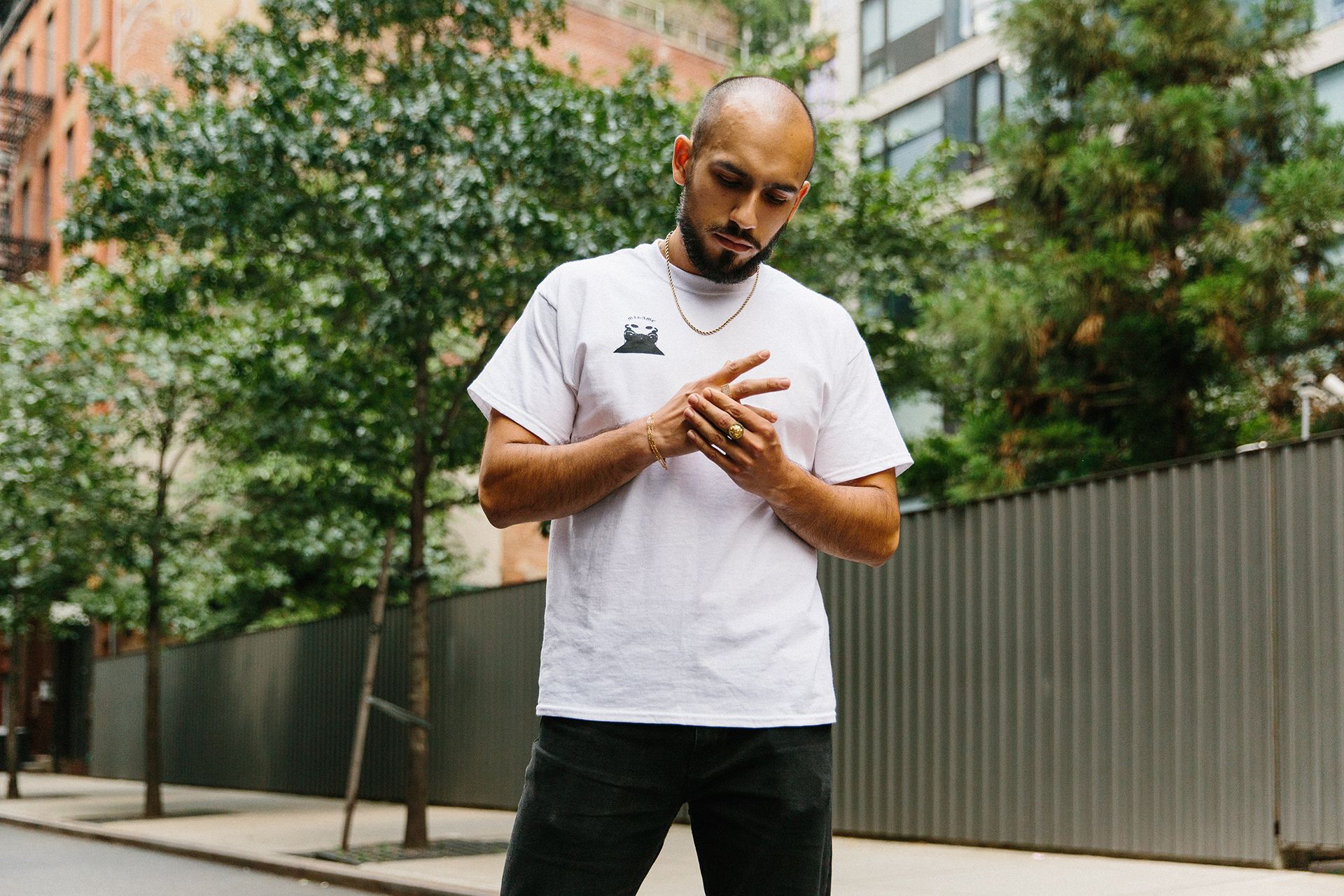
In Latin cultures [they have a saying] “los hombres no lloran” which means men don’t cry. That was something my grandfather used to tell me when I used to start crying. I was in elementary school and that’s when it all starts. Men don’t know how to express their own emotions. Or they don’t know how to interpret another person’s emotions. When I was younger, I started questioning my sexuality because of how emotional I was. You get trained to think that men are one way, and if you aren’t that, then it’s like, am I not a man then? Am I gay because I feel this way? That’s a word that’s used by other men to emasculate you. “Dude, stop acting gay.”
I want to tell young men if you like to do something, that is what you should do. If you like to act one way, that is the way you should act. If you like to walk a certain way, stand a certain way, think a certain way, that is what you should do. Don’t let anyone tell you want you’re doing is wrong. Don’t let anyone tell you that you won’t amount to something. No one else is you. You can only be you, so make sure that every day, every minute, you are doing what you want to do. I’m very hopeful because these kids are viewing things differently. They’re more about being themselves. They’re more about individuality. I see them a little bit more open.
Interviews have been edited and condensed for clarity.

